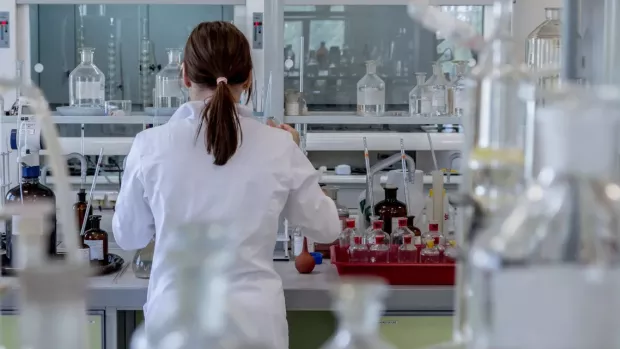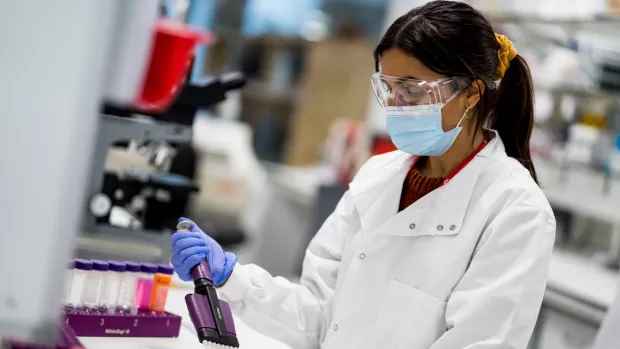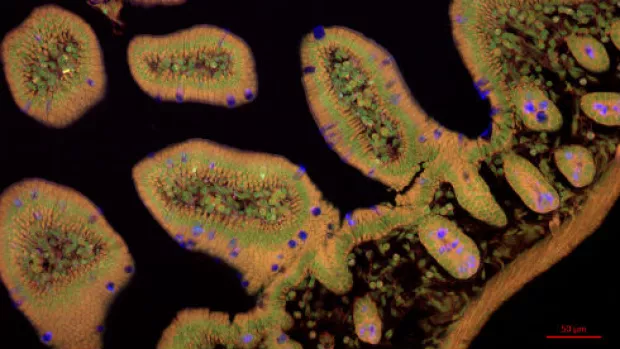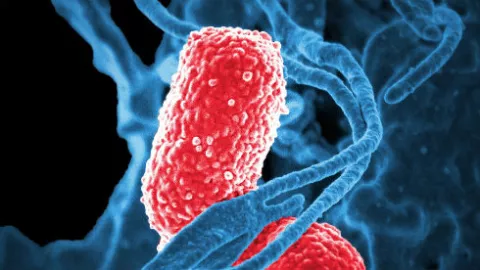
Microbes matter for MS: emerging topic of research from ECTRIMS conference
At ECTRIMS 2023, the world's largest MS research conference, researchers shared ideas about the microbiome and how it could be involved in MS.
The link between the gut and the brain is an exciting new area of MS research. At the MS conference ECTRIMS 2023, researchers shared their early findings on this topic. They showed connections between the gut, the gut bacteria, the immune system, and the brain. These could be important in MS.
The gut bacteria community
Everyone has a community of bacteria living peacefully in their gut. This is normal and many bacteria are helpful. Previous research has shown people with MS have different proportions of bacteria compared to people without MS. And the barrier of their gut sometimes doesn’t function as well
This was explored in new ways at ECTRIMS. For example, most data only looks at people from European ancestry. Gurkeerat Kaur, a PhD student from Chandigarh in India, showed for the first time this is also true for North Indian people with MS.
Read more about the equality, diversity and inclusion research at ECTRIMS
Dr K. Rashid Rumah from The Rockefeller University showed how his team plan to investigate a rare bacteria called C. perfringens, which research indicates may be linked to MS. It’s early days for this research but we know this bacteria releases a toxin that binds to myelin.
He added an antibiotic wouldn’t be a suitable treatment for MS because it wouldn’t be specific enough. But understanding this bacteria more could lead to new treatments.
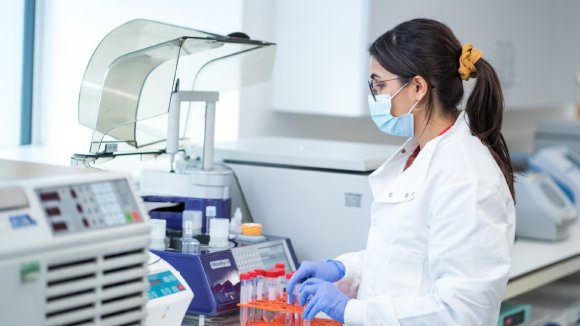
Rather than targeting all gut bacteria, researchers can understand the role they play in developing MS. Then focus on finding ways to specifically tweak the process.
Immune cell messengers
Researchers want to know how bacteria in the gut could affect cells of the brain in MS. The two organs are far apart in the body. So the effect is probably through cells and molecules travelling in blood vessels.
Several researchers at ECTRIMS suggested gut bacteria “activate” cells in the body. The activated cells might pass on messages which result in damage to myelin.
Dr. Laura Ghezzi from University of Milan thinks one of these activated cells is found in the gut wall. She showed the cells can leave the gut and directly interact with immune cells known to attack myelin. People with MS have fewer of these gut-resident cells. And the cells seem to behave differently.
Dr Caroline Pot from University of Lausanne showed another type of immune cell travels from other parts of the body into the gut. There, they are activated by the gut microbiome.
Read about research from 2021 about gut bacteria activating brain cells
The most likely scenario is many different types of cells play a role linking gut bacteria to the brain. If we understand more about these cell types it could reveal new ideas for treatments.
Future treatments
Researchers discussed what this means for people with MS. They agreed there’s a need to understand more about the body’s bacteria before developing new treatments.
For example, there’s limited research on how disease modifying therapies (DMTs) affect the gut bacteria. One piece of research at ECTRIMS investigated this. It showed teriflunomide, but not interferon beta, significantly changed the gut bacteria of people with MS compared to people on no DMTs. So researchers may need to consider the whole body when identifying new DMTs.
There may be surprising treatments in the future. Dr. Francisco Quintana from Harvard University showed a novel idea of engineering bacteria to have special properties. The bacteria could be made to have beneficial effects and taken as a probiotic. This has only been tried in the lab.
Read about research we fund focused on the cells of the gut
Rather than targeting all gut bacteria, researchers can understand the role they play in MS developing. Then focus on finding ways to specifically tweak the process.

